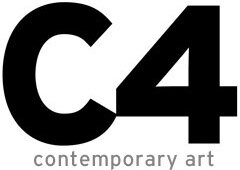Profile: James Turrell
Affiliated Movements: Op (Optical) Art, Contemporary Art. Minimalism, Earth Art
Affiliated Artists:
Jan Dibbets
Walter De Maria
Richard Serra
Robert Smithson
* The placement of other artists in the same categoryis purely for didactic purposes - any number alternate criteria could result in a different choice. This list is chosen by suggesting other artists, mostly working at the same point in time and whose work might evoke similar questions in the viewer.
|
 |
Cities of Light
Like any truly 'inspired' artist - James Turrell is hard to pigeonhole. His work hardly resembles that of his contemporaries - as much of the inspiration itself appears to come from the (perhaps metaphysical) properties of light itself, and the lack of ability of even our best scientific minds to really understand it's complex subtlety. Indeed Turrell seems almost to have come from a vacuum with respect to artistic reference and influence - one can see a little bit more reverence for Max Planck and Einstein perhaps in his work than that of the colleagues we choose to group him with.
Working out of a small studio in the area of Venice, California in the early 1970s Turrell began his exploration with projected light, as seen in the documented works below. Setting up a slide projector mounted to the ceiling of the room via a platform, Turrell painstakingly experimented with conventional 35mm slide frames masked off with opaque silver tape in various shapes registgered to the geometry of the corner of the studio into to generate what appears to be a three dimensional volume of brilliant light.
Projections
 Afrum (white), Corner Projection, 1966 Afrum (white), Corner Projection, 1966
|

Alta (pink), Corner Projection
|
 Alta, Corner Projection Alta, Corner Projection
|
 Arco Green, Corner Projection Arco Green, Corner Projection
|

Alta Green, Corner Projection
|
 Juke Green, Corner Projection. Juke Green, Corner Projection.
|
 Jan Dibbets - Perspective Correction, 1968. Jan Dibbets - Perspective Correction, 1968.
|
 Robert Smithson - Ithaca Mirror Trail, 1969. Robert Smithson - Ithaca Mirror Trail, 1969.
|
Life in the Perspectival Theatre:
Early experiments in considering the implications of the plane-implosion afforded by the camera, in converting the three dimensional field into two dimensions also begged the question of the reverse possibility - in 'staging' a perspectival illusion speciifcally for the camera. Jan Dibbets and Robert Smithson are two proponents of such an investigation. Other players can also be cited in the exercise, such as Gordon Matta-Clark and even Frank Stella. Much of this can be seen to have arisen not only because of the now more-comfortable adoption of the camera as a tool for use by the visual artist working in other media - but also as a result of many of the questions presented to the viewer of the ever-popular 'Op-Art fad' (if we dare call it that) of the mid to late 1960s.
|
Light Apertures (click for more detail)
 Phantom, Light Aperture Phantom, Light Aperture
|

Construction Drawings for Turrell Aperture Pieces
 Atlan, Light Aperture Atlan, Light Aperture
|

Atlan, Light Aperture
|
 First Moment, Light aperture. First Moment, Light aperture.
|
 photograph courtesy of USGS photographed on a Fairchild CA-3-2B aerial camera. photograph courtesy of USGS photographed on a Fairchild CA-3-2B aerial camera.
|
The Roden Crater Project
Perhaps one of the most misunderstood and misrepresented of Turrell's projects. This was begun more than 25 years ago as an extension of the discovery of the aperture pieces, above - and uses the same principle observed in them. The goal of the Roden Crater project is simply this: to sculpt the crater uniformly into a smooth parabolic section in order to create the illusion (from the bottom of the crater) that the depression in the earth (the crater itself) is in fact flat ground, and that the SKY ITSELF is 'vaulted' - he himself has referred to this effect as 'celestial vaulting'.
The effect is a simple one- the brain 'wants' to see the ground as flat, as that is what we are used to seeing - and, given a subtle enough ascent up the slopes of the crater, the brain WILL assume this - however - to take up the slack, the brain will need to compensate for some of the spurious information that it is taking in via the eyes (that the walls are in fact CURVED) and therefore - the brain will force the sky to appear to be solid, and curved, in the form of a dome or sphere. The effect would only be visible within a certain area of the crater itself and would therefore require the viewer to view the phenomenon at certain points within the crater. The project is to this date still unfiinished.
|
Biography (forthcoming)
written and edited by JWD
|

















